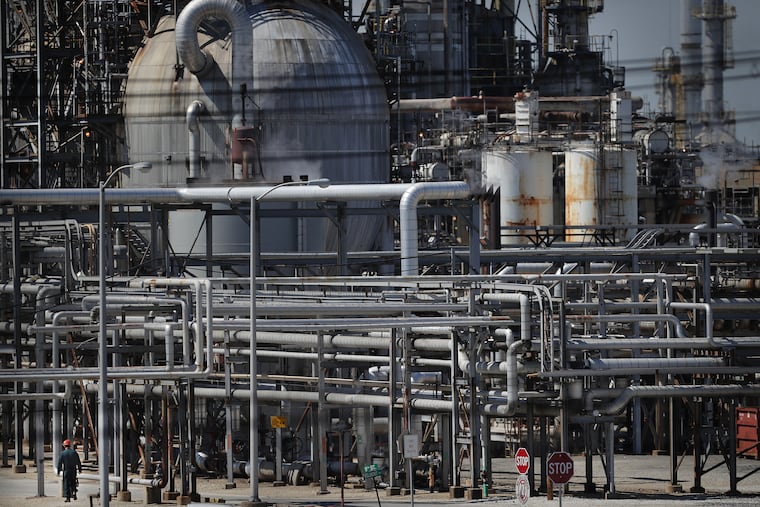Make your voice heard on what’s next for PES refinery | Opinion
The City hopes to continue a transparent and productive engagement with the wider public about environmental concerns and ideas related to the PES refinery and the site it occupies.

On July 31, the City of Philadelphia announced the Refinery Advisory Group to inform decisions facing the city in the aftermath of thePhiladelphia Energy Solutions’ explosion and fire. As the chair of the committee focused on environmental issues, I want to provide an update on our work to date.
The Environment Committee public meeting on Aug. 28 had 28 preregistered speakers and 10 speakers who signed up at the door. We had already extended our scheduled meeting time to 3 and a half hours and still we could not accommodate all the speakers. (Those speakers were invited, as is anyone else, to submit written comments to refinery@phila.gov.)
Attending city leaders heard a valuable mix of concerns and ideas from neighbors, workers, advocates, and analysts. Their spoken and written testimonies provide a wealth of information, which the committee is now reviewing and compiling for the city. (The city is making available the video recording of the public meetings and submitted testimony at www.phila.gov/refinery.)
We want to continue this transparent and productive engagement with the wider public about environmental concerns and ideas related to the PES refinery and the site it occupies. We are taking a deeper dive into the following series of questions and intend to build a framework for evaluating important aspects of any proposal being suggested in general terms or formally submitted for consideration in bankruptcy or other proceedings related to PES and its potential successors.
What is the estimated external (or uncompensated) cost of former refinery operations on the surrounding area in terms of school and work days missed, and premature mortality associated with the air, water, and land impacts of the operation of a refinery? (This kind of full-cost accounting should replace the practice of allowing hidden costs in any public interest consideration of alternatives.)
What is the estimated external cost of former refinery operations on greenhouse gas emissions, calculated both as a share of city and state greenhouse gas reduction targets and as an exposure to various carbon tax rates? (The latter serves as a kind of investor disclosure warning to the city about the survivability of economic activities in the future.)
What is the estimated external cost of former refinery operations on the ecosystems services at the site, both annually under current operations and contamination, and annually with remediation net of cleanup costs?
What carbon market mechanisms exist that could monetize the current suspension of the refinery’s free consumption of ecosystem services, and how much annual value for these services would existing markets realize for an owner willing to deliver those services?
What carbon market mechanisms exist that could finance a remediation of the site that would increase the value of produced ecosystem services over time, and how much value for these increased services would existing markets realize for an owner willing to deliver them?
Is there one or more market-making intermediaries willing to announce its interest in the site for an offset, easement, green bond, or other arrangement that would generate value for an owner?
What is the estimated production capacity of the site for renewable energy generation that could attract a power purchase agreement with a large on-site or nearby energy consumer that has stated clean energy goals?
What is the estimated economic impact on employment and earnings of shifting refinery operations from gasoline production toward chemical feedstock as part of a transition to nonpetroleum-based feedstocks for dozens of high-value intermediate and consumer goods around the world?
We invite comment on these questions. This list does not exhaust all the questions we are asking, but they represent some of the more important numbers that we plan to give the city.
We also know that there is much expertise on these topics in this region. We see real value in crowdsourcing data and findings on these questions. Please submit your comments to kleinmanenergy@upenn.edu and use the subject line “PES research questions.”
Mark Alan Hughes is a PennDesign professor, the founding sustainability director for Philadelphia, and the founding director of Kleinman Center for Energy Policy at Penn.